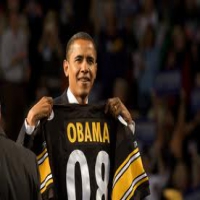Night Spotters' One of MVTrac's biggest custome
Post# of 5428

Night Spotters'
One of MVTrac's biggest customers is Mr. Griffin in Baltimore, whose company, Final Notice & Recovery LLC, has plate-recognition systems on 10 vehicles. Mr. Griffin employs drivers working two shifts, day and night, driving each car 300 to 400 miles a day, scanning plates in the Baltimore and Washington, D.C., areas.
A retired Baltimore police officer, Patrick Wilson, leads Final Notice's team of "night spotters," who drive after dark, scanning plates. Their black vehicles have tinted windows and hood-mounted cameras. They canvas alleys, parking lots and apartment complexes to scan as many vehicles as possible.
When the night spotters find a car wanted for repossession, they call in a tow truck. They can now repossess about 15 cars a night, Mr. Wilson says, up from about six per night before using the technology.
Missing Persons
Final Notice has amassed a database of 19 million historical locations of vehicles in and around Maryland and Washington. Mr. Griffin provides police free access to location information about vehicles in stolen-car or missing-person cases, among others, he says.
Soon he hopes to start selling access to his plate data to bail bondsmen, process servers, private investigators and insurers. "In the next five years, I hope my primary business will be data gathering," he says.
The plates scanned by people such as Mr. Griffin are contributed to Mr. Jackson's central MVTrac database. Mr. Jackson declined to be specific about the total number of scans in the database, but says, "We have [photographs of] a large majority" of registered vehicles in the U.S.
Until recently, rival company Vigilant Solutions, a subsidiary of Digital Recognition Network, provided a counter on its website tallying its plate-scanning database. The latest read: about 700 million scans.
DRN says on its website that it can "combine automotive data such as where millions of people drive their cars…with household income and other valuable information" so companies can "pinpoint consumers more effectively." DRN declined to comment.
Mr. Jackson says he hasn't decided what to do with his database but will be guided by the 1994 federal law governing access to drivers' personal data. "We're not going to allow somebody to access the data to track a girlfriend, track a wife," he says.
Instead, he says he is more likely to use it to help officers track down fugitives, execute warrants and collect parking tickets. He says he is in no rush to sell the data. "Every day it just gets more valuable because we collect more information."
 (0)
(0) (0)
(0)